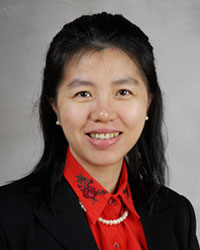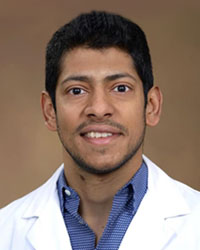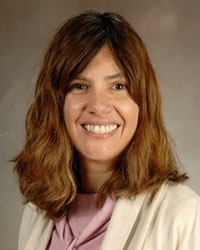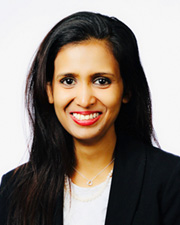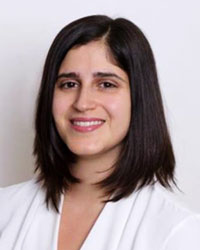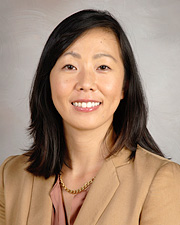Hematology/Oncology Fellowship
The McGovern Medical School Hematology/Oncology Fellowship is a 3-year program that provides newly graduated internal medicine physicians with the opportunity to gain a solid foundation in the clinical and research practice of Hematology/Oncology. Our program was accredited in 2016 by the American Council for Graduate Medical Education, the non-profit private council that evaluates and accredits medical residency and internship programs for physicians in the United States. Our program seeks to provide young physicians with the training necessary to enter a clinical practice or research career with confidence. The curriculum grounds our fellows in the basics of Hematology/Oncology, with rotations in both malignant and classical hematology, as well as in solid tumor malignancies.
Mission Statement:
The Hematology/Oncology program at UTHealth will provide the necessary resources for trainees to master the art and science of treating and caring for patients with hematologic and oncologic diseases. The program is committed to train and mentor fellows to improve their clinical abilities and facilitate the development of a clinical career or an investigative pathway for translational and/or clinical research.
Provide trainees with analytical skills and evidence-based medicine to care for patients with a broad spectrum of hematologic and oncologic diseases. The Program will provide guidance through mentorship for fellows to assure the successful implementation of an appropriate investigative research project and career development plan. Intrinsic to the discipline is scientific knowledge, the scientific method of problem-solving, evidence-based decision-making, a commitment to lifelong learning, and an attitude of caring that is derived from humanistic and professional values. Inpatient and outpatient clinical rotations have been specifically planned to develop clinical excellence and encourage academic discussions and debate.
The guiding philosophy of the Hematology-Oncology Fellowship training program at UT Health is ISAR.
ISAR stands for:
- Immersion:
The program will provide an environment for fellows to immerse themselves in the field of hematology/oncology in a transformative way for independent practice, the quest for cancer discovery, and life-long self-learning. - Scholarship:
Fellows are scholars in the field of hematology/oncology who have dedicated three years of their life to advanced medical training. They are expected to engage in scholarly activities and explore new ideas in this field and learn how to transform those ideas into productive research projects. - Acumen:
To practice hematology/oncology, medical knowledge is only the preliminary step. Developing the clinical acumen to apply medical knowledge in the correct clinical context is paramount in making sound clinical judgments while treating complex hematology/oncology cases. - Resilience:
The practice of hematology/oncology can be physically and emotionally demanding. Having resilience will enable trainees to overcome physical and emotional challenges associated with this profession, avoid physician burnout, and improve their overall wellbeing.
The end result of following this philosophy and training program is to produce competent hematologists/oncologists who not only have sound clinical judgment to make the best decisions for their patients, but also have the quality of ISAR which in Arabic means “Giving preference to others over our own self.” ISAR is a preferred quality for a cancer physician, who at many times have to give professional priority to the needs of cancer patients over their own personal comfort, as they help guide their patients through the most challenging period of their lives.
Hematology/Oncology Fellowship Director:
Dr. Jafri pursued an extra Fellowship in Integrative Medicine from The Arizona Center of Integrative Medicine under the directorship of Dr. Andrew Weil and started a very popular integrative medicine program at LSU. He joined UTHealth in November 2013 to head our thoracic and head & neck oncology program. He is Board certified in hematology and oncology.
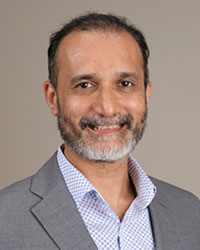
Associate Program Directors:
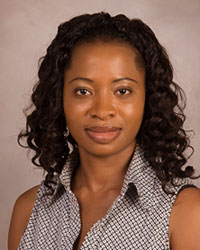
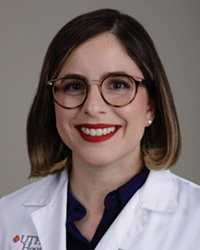
Core Faculty:
The Fellows in the Hematology/Oncology Fellowship enjoy the expertise of institutionally based core faculty members who serve as key faculty. They are expert competency evaluators who work closely with the Program Director and Associate Program Directors in development and implementation of the evaluation system and in teaching and advising the Fellows. Each core faculty is ABIM certified in their respective subspecialty and are clinically active in both direct patient care and observation of Fellows in their patient care. Each key faculty member is accountable to the Program Director for coordination of the Fellows’ educational experiences in order to accomplish the goals and objectives of each rotation. The Key Faculty also participate in the mentorship program available to Fellows to help guide and provide advice about career and educational goals.
